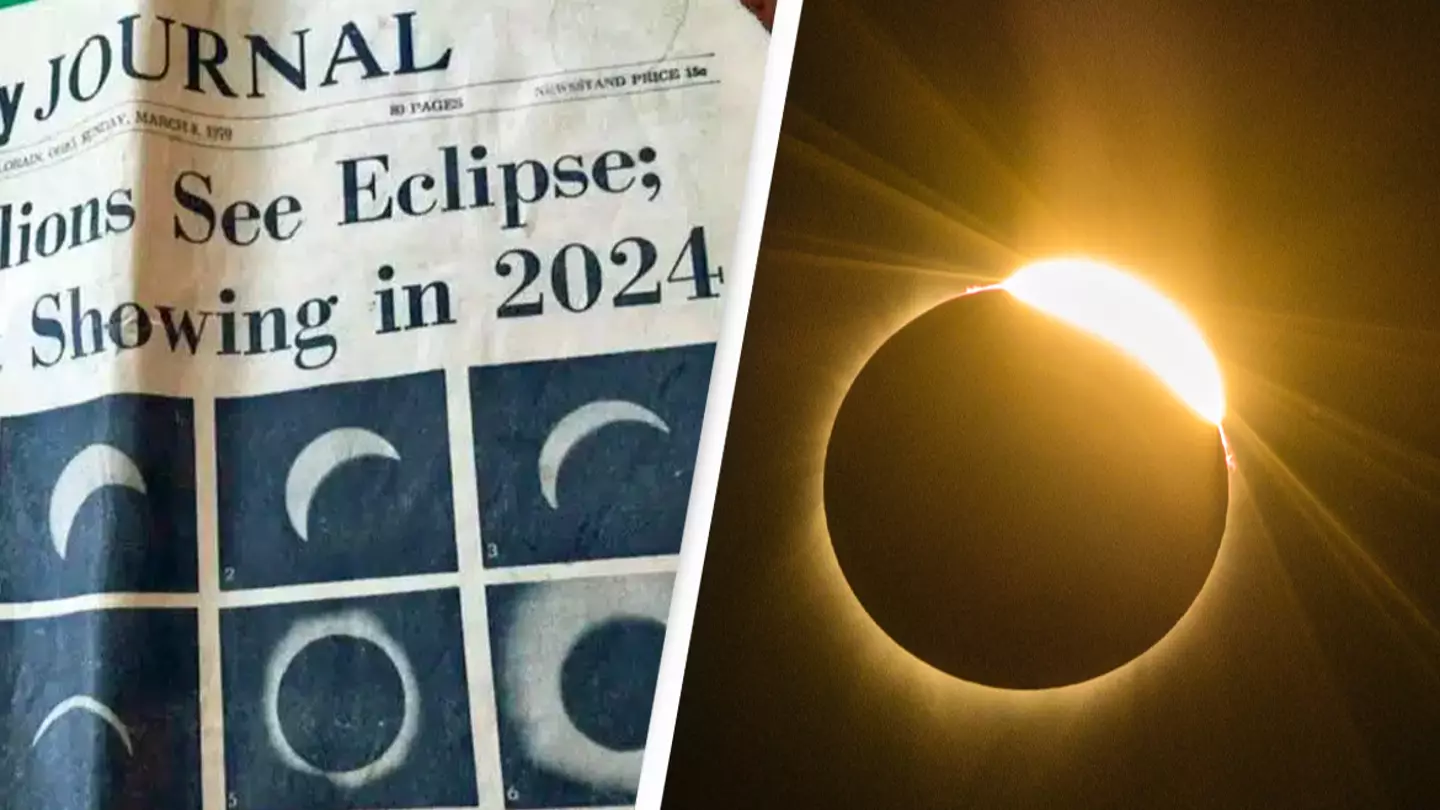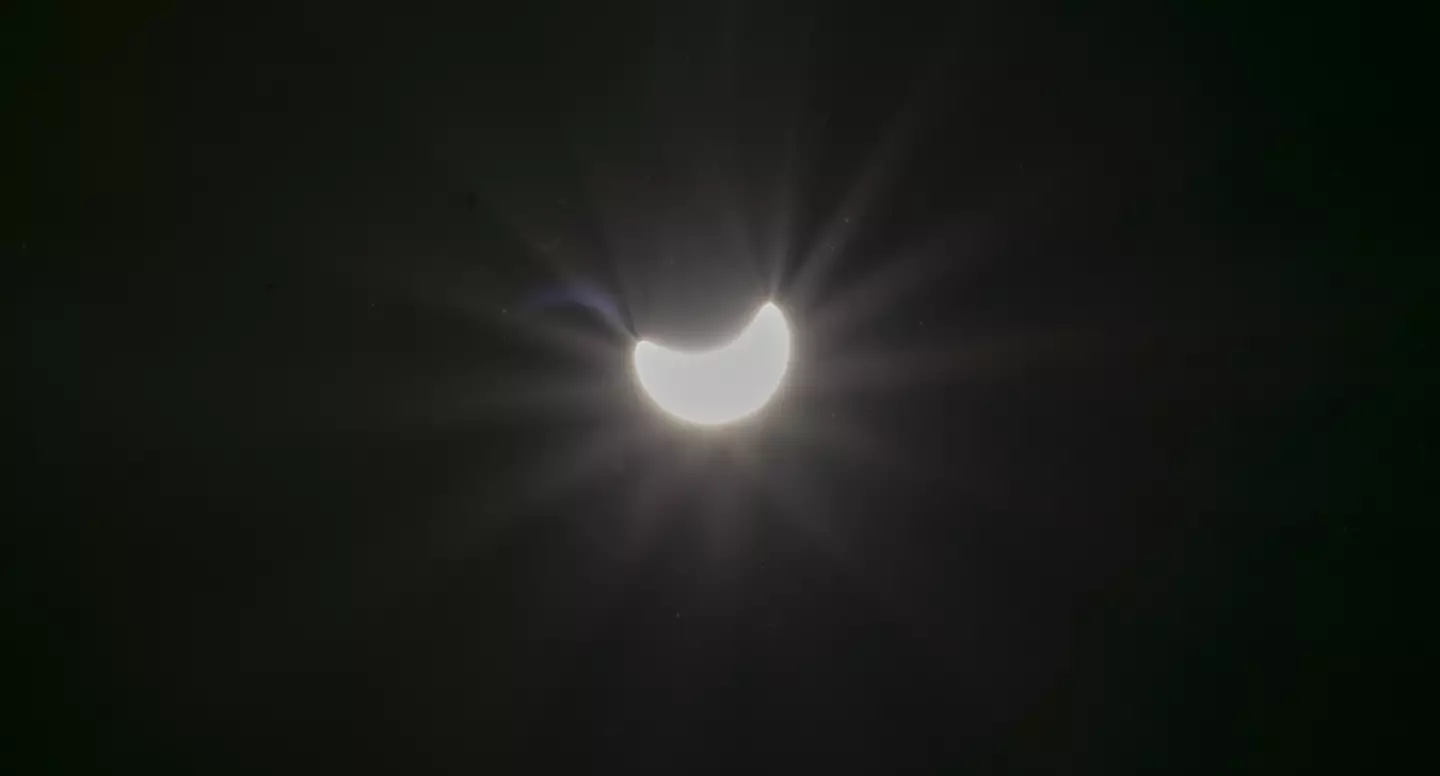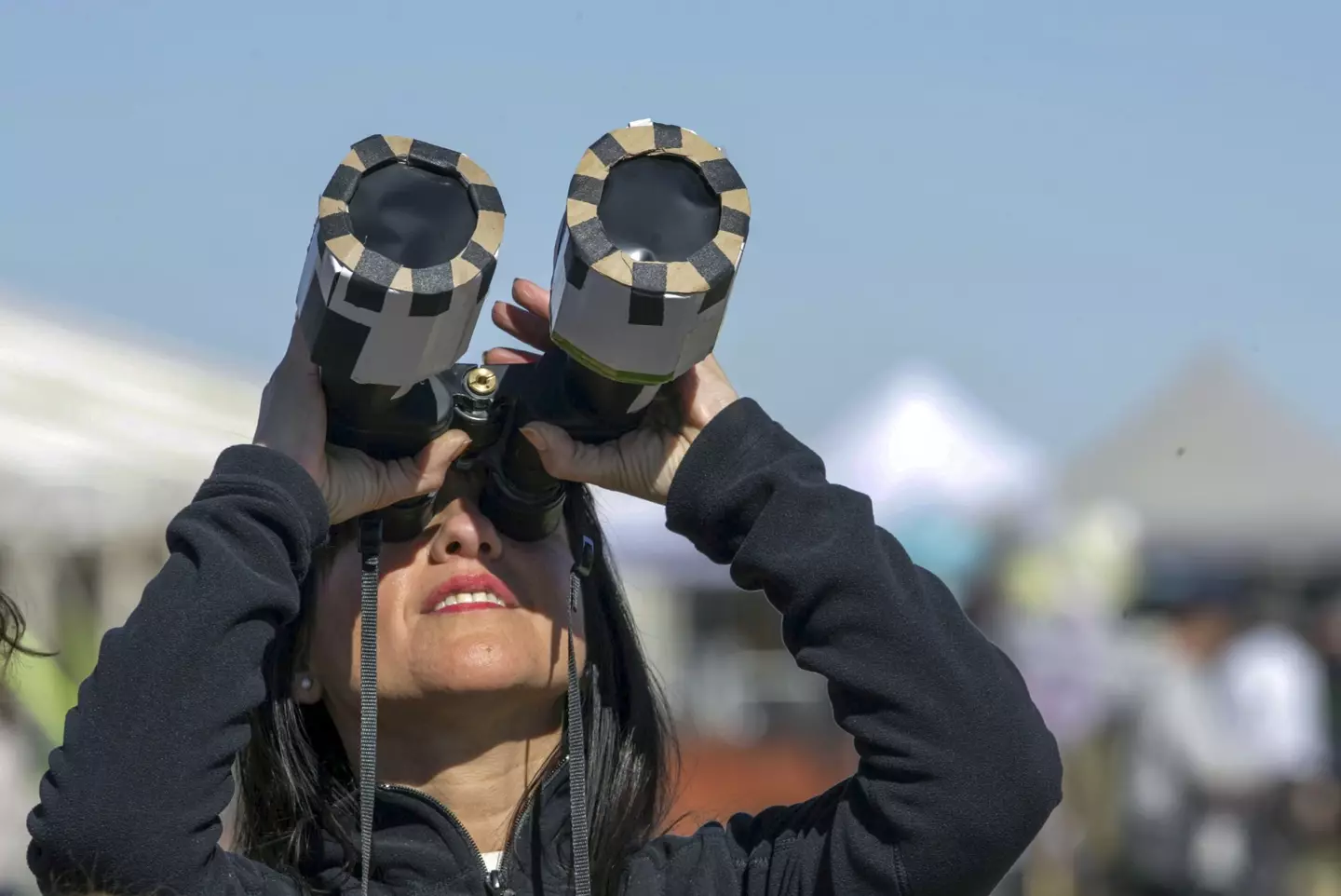
A newspaper clipping from 1970 predicting a solar eclipse in 2024 has come true.
Now, 1970 may not seem that long ago to some people, however, without the help of modern technology, accurately predicting solar eclipses is harder than you may initially think.
And despite this, a 1970 newspaper managed to predict one occurring over 50 years later with impressive accuracy.
The 1970 newspaper cutting prediction
If you'd forgotten a bit about the solar system since leaving school, a total solar eclipse occurs when the Moon fully blocks the Sun as it passes between the Sun and Earth.
Advert
Reddit user u/Fleegle1834 took to the thread r/Damnthatsinteresting to share an image of the front cover of their neighbor's 1970 newspaper.
The headline of The Sunday Journal reads: "Millions See Eclipse Next Showing in 2024."
"Blackout total in some areas," it adds, attributing the prediction to 'scientists'.
Written by Victor Cohn form The Washington Post, the extract documents a lunar eclipse occurring in March 1970 and then he predicts the next total solar eclipse to occur on 8 April.
The 2024 total solar eclipse
And the prediction is set to be fulfilled, with modern-day NASA astrologers confirming a 'total solar eclipse' is set to take place later this week on 8 April.
Advert
NASA's website states: "On April 8, 2024, a total solar eclipse will cross North America, passing over Mexico, United States, and Canada.
"A total solar eclipse happens when the Moon passes between the Sun and Earth, completely blocking the face of the Sun. The sky will darken as if it were dawn or dusk."
And it's not taken long for people to flood to the Reddit post to weigh in on the success of the prediction.

The reaction to the 1970 prediction
Some were quick to point out eclipses are pretty predictable occurences.
Advert
One said: "Ah... MATH!"
"...So...? We can know the date and locations where they can be seen for every eclipses for the next couple millennia?" another added.
Astronomy.com writer Sabine Bellstedt notes while it's 'clear' those in the past could predict timings for 'lunar eclipses and partial solar eclipses' it can be a lot more difficult to accurately predict total solar eclipses.
However, she says this applies to 'ancient people,' which doesn't really count those in the 1950s, unless you fancy really offending your mom or grandparents that is.
Advert
And according to BBC's Sky At Night magazine, astronomers have been able to predict solar eclipses accurately for the last 300 years.
However, TimeandDate.com does note 'total accuracy is impossible' as while eclipse times can be 'determined mathematically' factors such as the speed of the Earth's rotation not being constant and the Earth nor Moon being perfectly round, can make it harder - which does make the 1970 prediction being so accurate at least a bit impressive.
And if you do fancy catching the next total solar eclipse?

Where and when you can catch it
Well, NASA explains that 'weather permitting', 'the first location in continental North America that will experience totality is Mexico’s Pacific coast at around 11:07 a.m. PDT'.
Advert
It continues: "The path of the eclipse continues from Mexico, entering the United States in Texas, and traveling through Oklahoma, Arkansas, Missouri, Illinois, Kentucky, Indiana, Ohio, Pennsylvania, New York, Vermont, New Hampshire, and Maine. Small parts of Tennessee and Michigan will also experience the total solar eclipse.
"The eclipse will enter Canada in Southern Ontario, and continue through Quebec, New Brunswick, Prince Edward Island, and Cape Breton. The eclipse will exit continental North America on the Atlantic coast of Newfoundland, Canada, at 5:16 p.m. NDT."
Safety advice
NASA notes that it's 'not safe to look directly at the Sun without specialized eye protection for solar viewing' apart from the brief 'total phase of a total solar eclipse when the Moon completely blocks the Sun's bright face' so advises to use 'special-purpose solar filters' on lenses and wearing 'solar viewing glasses' or a 'handheld solar viewer'.
"You can also use an indirect viewing method, such as a pinhole projector," it adds.
So, whack on some Bonnie Tyler and happy total eclipse viewing everyone!
Topics: Science, Social Media, Space, Weather, World News, NASA